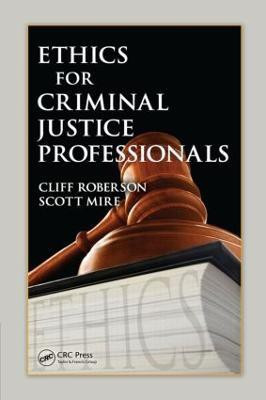Ethics for Criminal Justice Professionals(English, Hardcover, Roberson Cliff)
Quick Overview
Product Price Comparison
Increasing concerns about the accountability of criminal justice professionals at all levels has placed a heightened focus on the behavior of those who work in the system. Judges, attorneys, police, and prison employees are all under increased scrutiny from the public and the media. Ethics for Criminal Justice Professionals examines the myriad of ethical issues that confront law enforcement, judicial system, and correctional personnel. Easy to read, practical, and filled with real-life scenarios, this comprehensive volume sheds light on an often complicated and controversial topic. The book begins by defining the subject matter, explaining what ethics is, and what it is not. It explores the concept of false moral identity, examines difficult decisions that arise from attorney-client privilege, and discusses problematic issues such as officer gratuities. Next, the book provides a historical review of the concept of ethical reasoning, examining different religious and cultural influences and exploring ethics from various schools of philosophy. Ethics and police officers The authors discuss management and corruption, the causes and effects of abuse of authority, police perjury, and the practice of lying to obtain a confession. They explore the role of prejudice and discrimination in unethical behavior and review legislation designed to curb such practices. Ethics in the courtroom Shifting to issues that arise in the courtroom, the book addresses prosecutorial and judicial misconduct, discovery violations, the presentation of inadmissible evidence, discretion to prosecute, and defense counsel ethics. Ethics in the prison system Finally, the book explores issues that arise with respect to correction. The authors examine the four purposes of punishment: retribution, deterrence, incapacitation, and rehabilitation, as well as the death penalty and methods of execution. Each chapter ends with a set of review questions to test comprehension and a series of exercises further clarifies the material. Interspersed with the content are real-life vignettes that help to ground the theoretical concepts in practice and actual court cases that illustrate the principles. Ample references are provided to inspire further study of issues for which often there are no easy answers.


